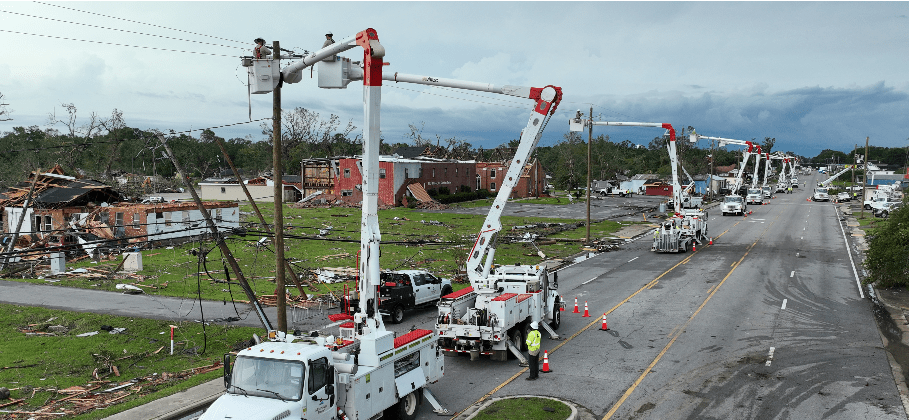
Business columnist Phil Hardwick shares 7 ways the real estate universe is being reinvented.
The real estate world is changing. And it’s changing fast. In this column we look at seven ways the real estate universe is being reinvented.
Futurist Joel Barker would no doubt observe that the industry is in a paradigm shift. In his bestselling book, The Business of Paradigms, he pointed out that a paradigm is a problem-solving system, and a paradigm shift is when you change from one set of rules to another. So, let’s take a look at how real estate rules/paradigms are changing.
By way of background, let’s set the stage by illustrating how it’s almost always been done for quite some time. In the residential real estate brokerage world, a homeowner desiring to sell their property contacted a real estate broker, signed a listing agreement, and the broker placed the listing in the local Multiple Listing Service. An offer was made by a buyer, it was accepted by the seller, and a closing was held. The buyer typically paid a small downpayment and took out a long-term mortgage for the balance.
That’s a very abbreviated version of course. The process contributed to a homeownership rate that is the envy of the world. The homeownership rate in the United States peaked in 2004 at 69.2%, dropped to 63.7% in 2016, and stood at 65.9% in 2022, according to the Census Bureau. In Mississippi, the rate peaked 2005 at 78.8%, dropped to 69.7% in 2016, and stood at 72.3% in 2022.
Below are seven significant changes and factors causing their realignments.
1. Residential rental subdivisions
Not far from where I live a new subdivision was completed within the last few months. The houses are in the $350,000-$500,000 range. What’s different about this subdivision is that none of the houses are for sale. They are for rent. This was the first time I had seen a subdivision come on the market that was purely rental. In the past, a developer purchased, acreage, installed the necessary infrastructure, and then sold the lots to builders or built homes themselves, which were then sold to homebuyers.
According to experts, this new way of building new homes is a result of it being more affordable to rent than buying a home in 2023. Also, many Millennials are choosing to rent instead of purchase. In addition, many are planning to relocate and don’t want the hassle of selling. Mortgage rates are up, real estate prices are up,
2. Big investors buying existing houses
Affordability also plays a role in opportunities for large investment companies to acquire existing single-family homes and rent them. Over 500 homes in Jackson have already been purchased by an investment company/hedge fund and have been turned into rentals.
3. Real estate agent commissions undergoing scrutiny
In October 2023, the National Association of Realtors (NAR) and several large residential brokerage firms were found liable for approximately $1.8 billion in damages after a Missouri determined they conspired to keep commissions for home sales artificially high. Under the current system, sellers pay their own agent’s commission—typically 5% to 6% of a home’s selling price—which is in turn shared with the buyer’s agent. Plaintiffs’ attorneys argued this model has suppressed competition by making it difficult for buyers and sellers to negotiate for lower rates. Much of the case hinged on how an offer of compensation to a buyer’s agent is a condition for advertising a home on a Multiple Listing (MLS). NAR has said those commission offers are negotiable. NAR and the firms announced they would appeal. The case is styled Joshua Sitzer, et al. v. The National Association of Realtors, et al.
Another lawsuit against NAR and some other brokerages, involving 20 markets from Philadelphia to Miami, could go to trial next year in an Illinois federal court. The damages in that trial could top $40 billion, according to an analyst estimate.
4. Technology’s influence on real estate
During the pandemic, virtual tours of homes and drone videos played a significant role in marketing real estate, so much so that many homes were bought without an actual visit from the buyer. Technology by real estate agents is being used more and more. The just-released National Association of Realtors 2023 Technology Report revealed the results of a survey of its members. It found that respondents using these technology tools in their businesses were very impactful: eSignature (79 percent), lockbox/showing tech (66 percent), and cloud storage (48 percent). Regarding social media, 92% of respondents use Facebook in their real estate business, 68 percent use Instagram, 52 percent use LinkedIn, and 26 percent use YouTube.
5. Buyers have more information than ever
Realtor.com and Zillow.com have put real estate information in the hands of the masses. Long gone were the days when real estate agents lugged around MLS books to look up and share information. Mississippi is still one of the few states where sales prices of real estate are still not shown on the deed or other public document.
6. Lodging industry upended
Airbnb fundamentally altered the lodging part of the real estate industry several years ago when it coordinated the daily rentals between individual property owners and guests. Today, over 60% of Airbnb listings include entire homes, while 34% make up private rooms. Airbnb’s are usually owned by individuals, however, that may be changing. For example, private equity firm TPG recently purchased some single-family homes in Florida, that will be rented out on a daily basis, according to an article in the Wall Street Journal, entitled “Your Next Airbnb Host Could Be a Private Equity Firm” a spokesperson for the company said the project is a “pilot program.”
7. Commercial real estate in downtowns experiencing downturn
Although multifamily and neighborhood retail are expected to stay strong, downtowns are already facing tough times and the immediate future is not bright. The national office vacancy rate reached 19.2% in the third quarter of 2023, according to Moody’s Analytics. Part of the blame is a result of the increasing use of remote workers and high interest rates.
#####
In summary, the world of real estate is changing at a rapid rate. But it should be remembered that all real estate is local. There are some markets, even in Mississippi, where houses are snapped up immediately after being listed. These changes, although profound, are just the latest in the continuing evolution of real estate.











